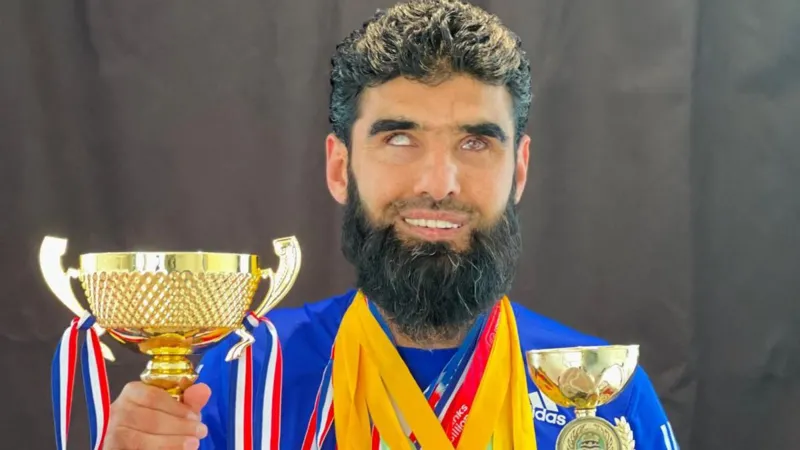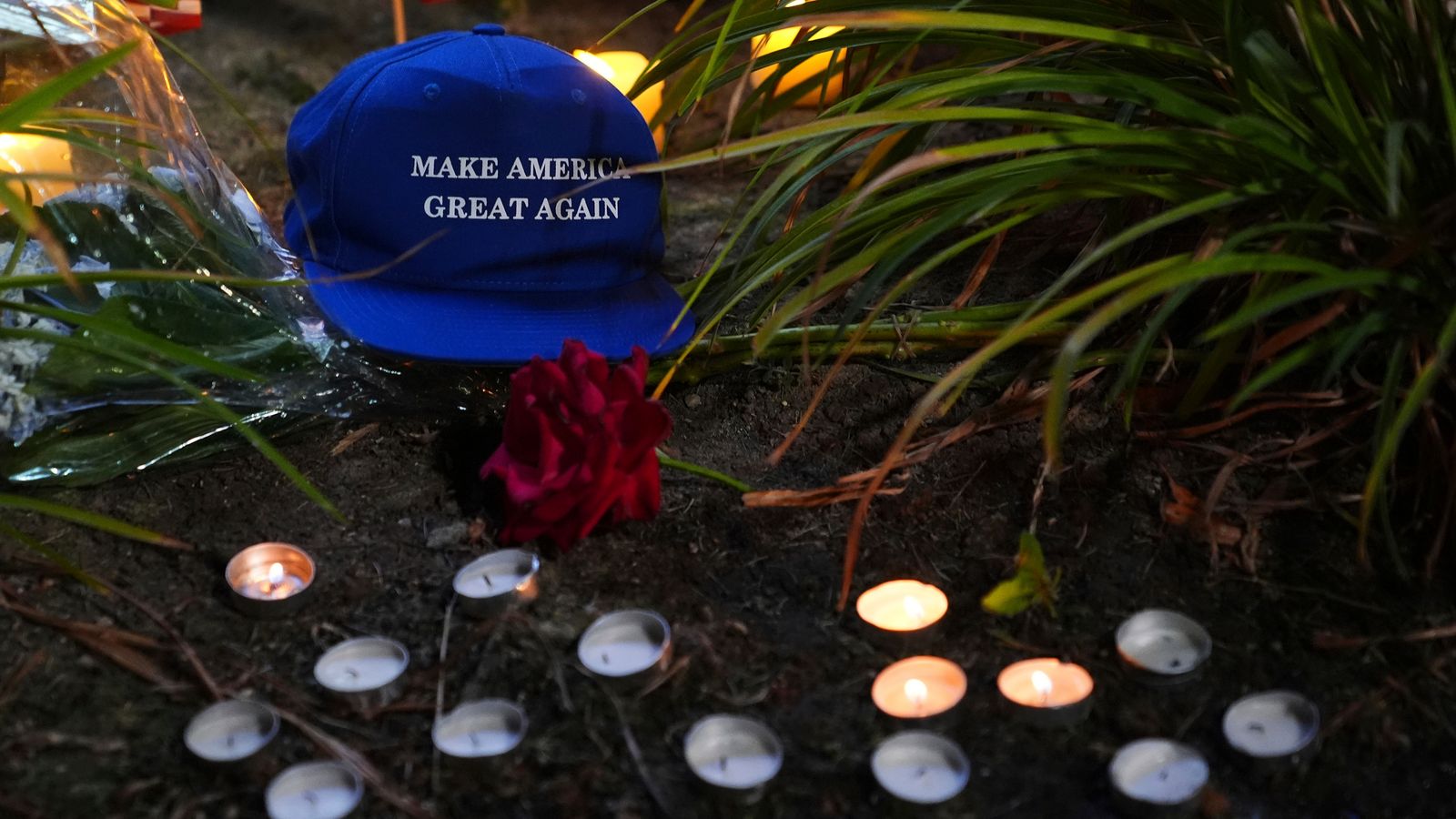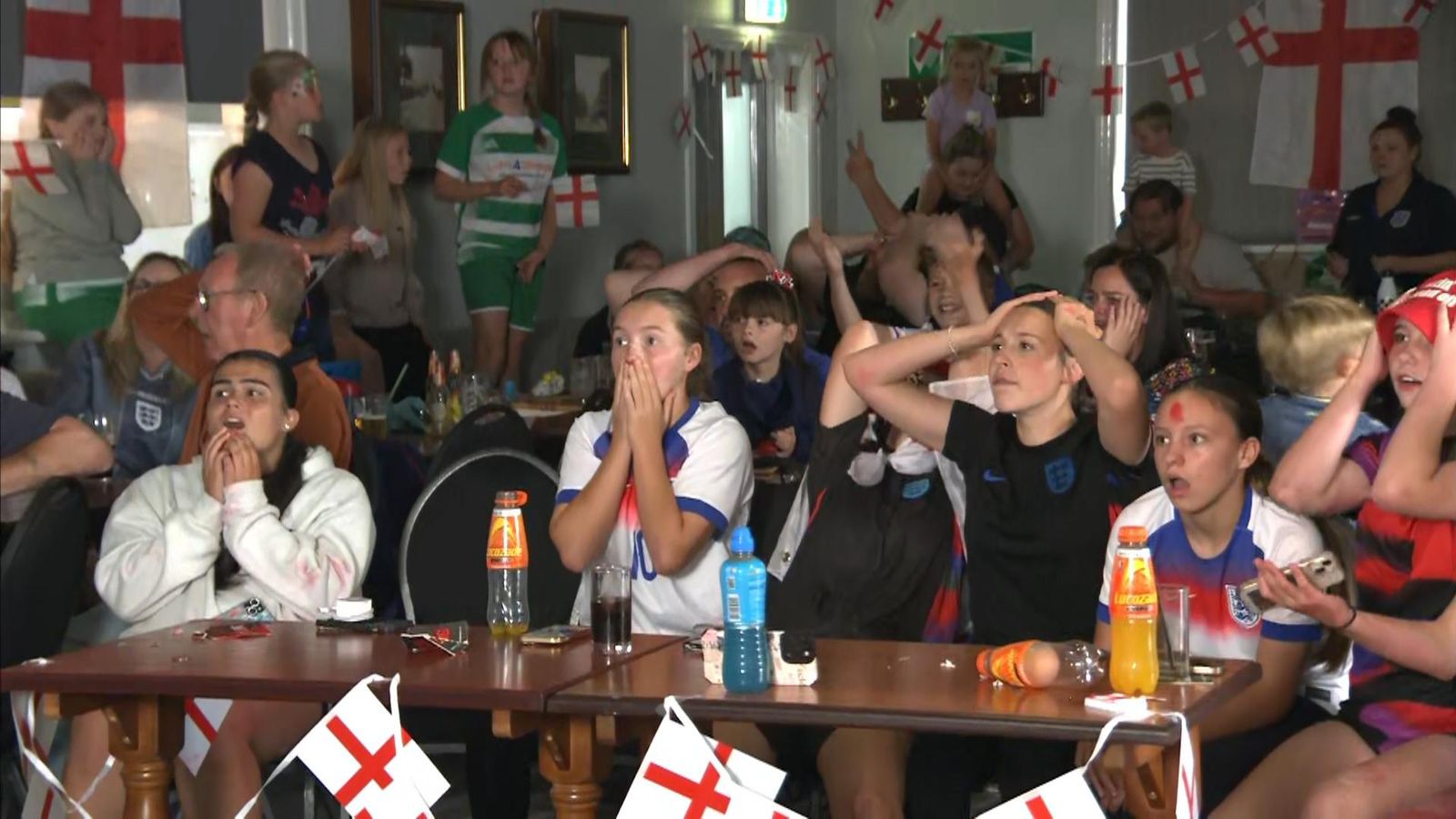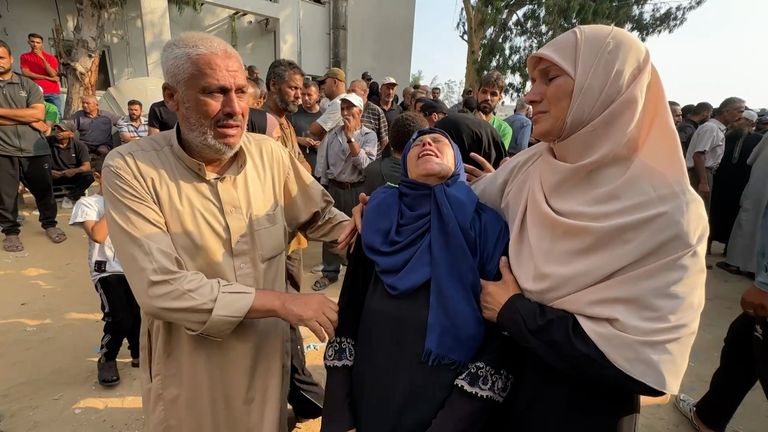I stepped on a bomb in Afghanistan. Blind running saved my life
Wali Noori was working as an interpreter for the British Army in Afghanistan in 2009 when he stepped on an explosive device.

The blast left him completely blind at the age of 20.
Growing up, he loved running in the mountains of Kabul but Wali thought he would never be able to run again.
Here, in his own words, he explains how moving to the UK changed his life and his determination to never give in.
'I knew I had to accept I might die'
Wali Noori Wali Noori as a young man in a flower fieldWali Noori
Wali loved to box and run when he was growing up in Kabul
Growing up in Kabul I was a very good boxer and I used to run to keep myself fit. I finished my studies and wanted to go to university, but my family were very poor and I needed to support them. They were starving, my father was not able to work and I have five sisters and four brothers.
So at the age of 18 I joined the British Army as a translator and cultural adviser. I had studied English at school and I was good at it. My job was to help the British Army, the Afghan forces and the local civilians communicate with each other and it was a very important job.
I was asked if I would go to Helmand Province, and I said yes, even though I knew I had to accept I might die. It was like hell. So many ambushes and people were dying every day but I wasn't scared.
I had been there for two years when I stepped on an IED (improvised explosive device) while on patrol. I was thrown up into the air and came crashing back down. I thought I must be dying but it felt like a dream. My whole face was full of shrapnel and I lost all 28 of my teeth.
I stopped breathing but put my hand down my throat and pulled out a piece of shrapnel. I could not see anything and I was helicoptered out, before spending two weeks in a coma in an army hospital in Kabul.
'I thought my life was over'
Wali Noori Wali in front of a helicopterWali Noori
Wali had some very dark days while coming to terms with his injuries
The doctors did not expect me to survive. When I woke up, I could not speak and I had to write my name down for them, so they could call my friend who told my family what had happened.
When my mum and dad came for the first time, it was very hard time for them. I managed to sit up so I would not look so poorly and I tried to smile for them, but I still could not speak.
I was transferred to Bagram Hospital and airbase, where the Americans treated my facial wounds and fractures. I was breathing through a tube from my neck. I was there for a month before I went to hospitals in both India and Pakistan to see if they could save my sight, but it was not possible.
It was not easy and I had some very dark days. I used to love running but I thought my running days were over. I was a single man and I ended up living back with my family in Afghanistan. I did not know how I would get through the rest of my life and I thought no one would want to marry me.
But in 2012, I had an arranged marriage. From that day on my wife has been my biggest supporter. She threw away my white cane and she said "I am your stick". She is very kind and whenever I get sad she says "come on, I am here". We have three beautiful children and we are so lucky.
I could not work while living in Afghanistan, even though I wanted to. The British Army gave me one year's salary but I was struggling and the country is not set up very well for disabled people.
In 2014, I was told by the British Government that I was eligible to come to the UK with my family. It took two years to sort out but since we moved to Colchester, we have never looked back.
I really like it here. It is a nice place and I have made some lovely friends, especially at my running club, the Colchester Harriers. And we are safe.
I realised I could start running again, because they have guide runners, and this has given me back my freedom and my mental health. I get terrible headaches due to my injuries but I go out running and my headache is forgotten.
I waited for five years to get selected for the Invictus Games and I was so proud to represent the UK last September. I won four gold medals, in the 100m, 200m, 400m and 1500m. I met Prince Harry and Meghan and they were so warm and friendly.
Harry shook my hand, I didn't know who he was. I said "who is this?" and he said "I'm Prince Harry" and we laughed and chatted. It was an incredible moment in my life.
'I will never surrender to my blindness'
I have now won 21 medals for running and three for swimming. I always want to move forwards in my life and I never look back. I am always trying to improve and I make sure I never give up.
My dream is to one day compete at the Paralympic Games. I qualified for it in terms of how quick I am, and meet the criteria, but I missed the deadline to apply this time. But I will get there one day. I would also like to complete the six major marathons, having done London in 2019.
I have just written a book about my life and it will be published on 12 September, which is 15 years to the day I went blind. I go into schools and colleges and different groups like army veterans to share my story and I recently spoke to some veterans who were injured in Ukraine. When I get money for these speeches I send it back to Afghanistan to help the widows and orphans there.
I will never regret signing up to work for the British Army and what happened to me. Life was very tough for me before that but life is going well for me now. I will never surrender to my blindness. I want to keep inspiring people and show that disability does not have to stop you from achieving great things.
-bbc







